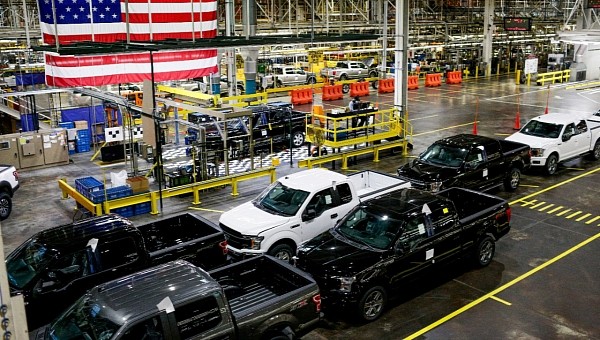The automotive industry continues to struggle with a very constrained chip inventory, and unfortunately, there are no signs that the crisis would come to an end overnight.
This proves that all the expectations (coming from both automakers and industry experts) of a potential recovery in late 2022 were wrong, with the semiconductor shortage still wreaking havoc in the daily operations of most companies.
Just like the rest of the industry, Ford too, is struggling to deal with the lack of chips. The company says it has around 40,000 unfinished vehicles that are sitting in parking lots and waiting for semiconductors. Once the chip supply is replenished, the company can install the missing systems on these vehicles and then ship them to dealerships.
Ford is confident that all of them would be in the hands of customers by the end of this year, so the company has about two months to deal with the problem.
But this doesn’t necessarily mean that Ford believes the chip shortage would come to an end this year. Not at all, actually. The company thinks the constrained semiconductor inventory will remain a problem through 2023, so don’t expect any significant improvements in terms of the waiting time for a new car.
Ford CFO John Lawler has recently been cited as saying that a “significant relief” in terms of chip supply is very unlikely in 2023, so no, there’s no end in sight for the problem that has brought the automotive industry to its knees in the last couple of years.
In the meantime, Ford obviously isn’t the only company struggling with semiconductor-related issues.
Toyota is also hit hard by the lack of chips and the rising costs of materials, so the company has decided to temporarily halt production at no less than half of its domestic facilities throughout November. Furthermore, Japanese customers are no longer getting two smart electronic keys for their cars but only a single one, once again because of the very limited number of chips currently in supply.
Just like the rest of the industry, Ford too, is struggling to deal with the lack of chips. The company says it has around 40,000 unfinished vehicles that are sitting in parking lots and waiting for semiconductors. Once the chip supply is replenished, the company can install the missing systems on these vehicles and then ship them to dealerships.
Ford is confident that all of them would be in the hands of customers by the end of this year, so the company has about two months to deal with the problem.
But this doesn’t necessarily mean that Ford believes the chip shortage would come to an end this year. Not at all, actually. The company thinks the constrained semiconductor inventory will remain a problem through 2023, so don’t expect any significant improvements in terms of the waiting time for a new car.
Ford CFO John Lawler has recently been cited as saying that a “significant relief” in terms of chip supply is very unlikely in 2023, so no, there’s no end in sight for the problem that has brought the automotive industry to its knees in the last couple of years.
In the meantime, Ford obviously isn’t the only company struggling with semiconductor-related issues.
Toyota is also hit hard by the lack of chips and the rising costs of materials, so the company has decided to temporarily halt production at no less than half of its domestic facilities throughout November. Furthermore, Japanese customers are no longer getting two smart electronic keys for their cars but only a single one, once again because of the very limited number of chips currently in supply.
















